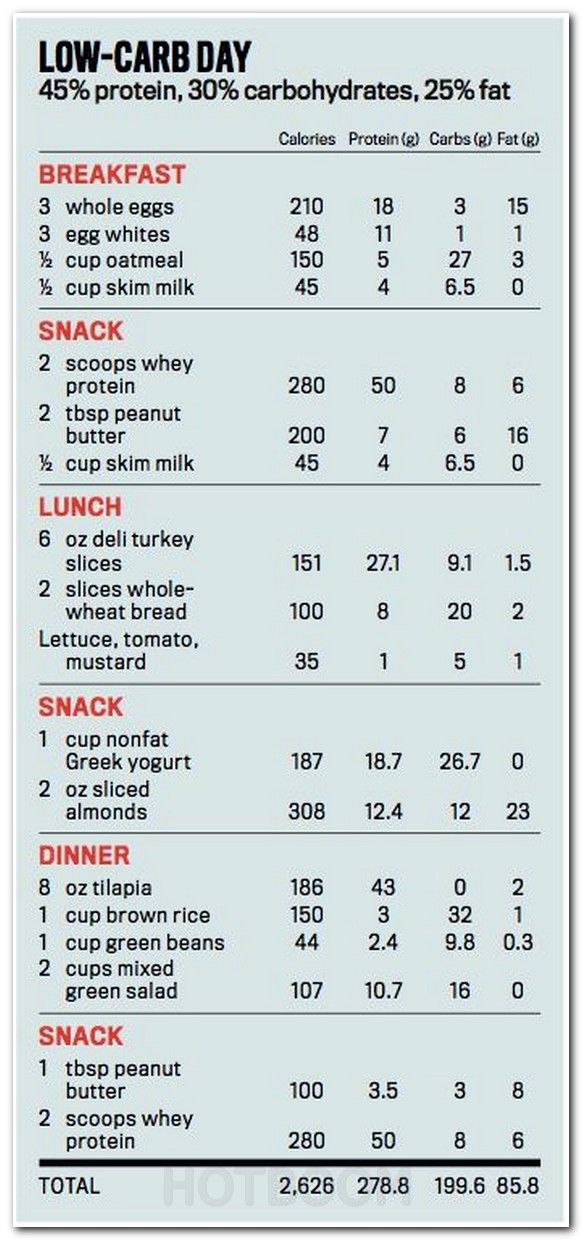Pregnant woman need energy
Too pooped to pop these days or meet friends for dinner, or make it halfway down that to-do list, or actually stay up for a prime time special — never mind the late show? Of course you are…you're pregnant! And while there may not yet be any evidence on the outside that you're busily building a baby, there's plenty going on inside at 9 weeks pregnant — and it's all hard work, the hardest work your body has ever done. What's more, your body's still in the process of manufacturing your baby's placenta which won't be complete until the fourth month. It's not surprising that you're always fighting fatigue — and feeling like you're fighting a losing battle. So what's an exhausted mom-to-be to do other than crawl into bed at the first opportunity?
SEE VIDEO BY TOPIC: Are You Really Eating for Two? Food and Nutrition During PregnancySEE VIDEO BY TOPIC: How can I deal with fatigue during pregnancy?Content:
Energy Foods During Pregnancy
Regina Belski does not work for, consult, own shares in or receive funding from any company or organisation that would benefit from this article, and has disclosed no relevant affiliations beyond their academic appointment. The amount of weight you should gain during pregnancy depends on your pre-pregnancy body mass index BMI. For obese women with a BMI of 30 or above, the recommended weight gain is between five and nine kilograms. These amounts increase for twin and triplet pregnancies.
A woman of a healthy weight carrying twins, for example, should aim to gain around If this weight gain sounds excessive, keep in mind that the baby at term makes up only about one-third of this weight. The rest may be made up of other tissues and fluids, including an extra 2kg of blood, 1. All of this weight is quickly lost after birth. This can happen quite quickly if she chooses to breastfeed.
Milk production, and hence lactation and breastfeeding, uses a lot of energy. If a woman gains closer to 20 to 25kg during her pregnancy, however, more of that will be fat and it will be much harder to lose. It could also put her at higher risk of developing gestational diabetes and other complications during the pregnancy.
Energy requirements vary over the pregnancy. And only about g to 2kg of weight should be gained during this time. In the second trimester, the energy requirements increase by about 1, kilojoules per day or calories.
For the final trimester, the energy requirements increase again, by a total of 1,kJ a day above pre-pregnancy requirements. While all nutrients are important during pregnancy, three stand out for those of us living in the western world: folate, iodine and iron.
Adequate folate levels are critical for the healthy formation of the neural tube in the developing foetus. Folate is found in green leafy vegetables and is added to commercial breads. On top of these dietary sources, antenatal guidelines recommend supplementation with micrograms per day of folic acid, from 12 weeks before conception and throughout the first 12 weeks of pregnancy. Iodine is important for hormone development and is found in dairy products, seafood, seaweed, eggs and bread.
But diet alone may not deliver enough of this nutrient during pregnancy. Antenatal guidelines therefore recommend healthy pregnant women take an iodine supplement of micrograms each day. Iron helps the body manufacture red blood cells that carry oxygen around the body and can be found in red meat, fish, chicken, legumes and other plants. Unless pregnant women have a severe clinical iron deficiency, routine supplementation is not recommended.
Women with clinical deficiencies or health conditions should consult their doctor prior to taking and stopping supplements. Women need to have a sensible increase in their total energy intake to avoid excessive weight gain during pregnancy and have optimal outcomes for them and their babies.
York Festival of Ideas — York, York. Festival of Ideas — Hatfield , Hertfordshire. What is Quantum Technology? Edition: Available editions United Kingdom. Regina Belski , La Trobe University. Not gaining any weight during pregnancy, or not enough, can also be dangerous. But nutrient requirements are higher, so women need to be mindful of the quality of their diet.
Pregnancy Weight gain Antenatal Health Check.
Why Your Energy Tanks During Pregnancy—and How to Get It Back
All orders within the UK qualify for free standard tracked delivery. Thank you for understanding. Energy levels in pregnancy can be extremely variable from person to person. During pregnancy hormone levels can play a part in how energised or tired we feel at times, depending upon our responses to them as an individual.
All you want to do is lie down on a floor anywhere and just sleep. Most of you will feel fatigue during pregnancy, especially during early and late pregnancy. At these times, your body is producing new hormones and making a lot of changes to prepare for the hard work ahead which is exhausting creating a human being takes a lot of work! During early pregnancy, your body is in a hormonal free for all, which causes the production of more progesterone.
Fatigue During Pregnancy
Dietary intake during pregnancy must provide the energy that will ensure the full-term delivery of a healthy newborn baby of adequate size and appropriate body composition by a woman whose weight, body composition and PAL are consistent with long-term good health and well-being. The ideal situation is for a woman to enter pregnancy at a normal weight and with good nutritional status. Therefore, the energy requirements of pregnancy are those needed for adequate maternal gain to ensure the growth of the foetus, placenta and associated maternal tissues, and to provide for the increased metabolic demands of pregnancy, in addition to the energy needed to maintain adequate maternal weight, body composition and physical activity throughout the gestational period, as well as for sufficient energy stores to assist in proper lactation after delivery. Special considerations must be made for women who are under- or overweight when they enter pregnancy. This consultation reviewed recent information on the association of maternal weight gain and body composition with the newborn birth weight, on the influence of birth weight on infant mortality, and on the associated metabolic demands of pregnancy WHO, a; Kelly et al. It was acknowledged that estimates of energy requirements and recommendations for energy intake of pregnant women should be population-specific, because of differences in body size, lifestyle and underlying nutritional status. Well-nourished women raised in affluent or economically developed societies may have different energy needs in pregnancy than women from low-income developing societies; pregnancy energy requirements of stunted or undernourished women may differ from those of overweight and obese women; and physical activity patterns may change during pregnancy to an extent that is determined by socio-economic and cultural factors. Even within a particular society, high variability is seen in the rates of gestational weight gain and energy expenditure of pregnant women, and therefore in their energy requirements.
Healthy Eating During Pregnancy
Giving up coffee was the hardest part of my pregnancy. I could hardly keep my eyes open, especially in my first and third trimesters. I looked for healthy natural alternatives to no avail. When our team began conceptualizing a safe, prenatal energy drink for pregnant women, I was thrilled. During pregnancy, women are encouraged to put caffeine on hold.
Your body is going through a wide range of internal and external changes in preparation for nurturing an additional life. During the first trimester , your body is literally creating an additional life-support system, heavily-taxing your energy levels. While the biggest building process involves making the placenta, the following life changes can also contribute to your exhaustion:. Yes — the first trimester of pregnancy is often the most exhausting.
What and How Much to Eat During Pregnancy
Regina Belski does not work for, consult, own shares in or receive funding from any company or organisation that would benefit from this article, and has disclosed no relevant affiliations beyond their academic appointment. The amount of weight you should gain during pregnancy depends on your pre-pregnancy body mass index BMI. For obese women with a BMI of 30 or above, the recommended weight gain is between five and nine kilograms.
Information available on the energy requirements during pregnancy is derived primarily from studies of well-nourished, healthy Western women. Preliminary evidence suggests that the metabolic adjustments in energy utilization in poorly nourished pregnant women differ markedly from the well-nourished. These differences will be discussed in greater detail later. Two approaches have been used to estimate energy requirements during pregnancy. The factorial approach is a summation of the energy equivalents of tissue protein and fat accretion and the energy need for metabolism of the added tissue.
Become a Byram Customer
You can change your city from here. We serve personalized stories based on the selected city. Coronavirus: Covid symptoms among kids being linked to Pediatric Multisystem Inflammatory Syndrome; here is what it is. Salman Khan's brother-in-law wore a denim jacket worth INR 90, and we tell you why it's so expensive! Abortion and reproductive health should be counted as "essential services" during the pandemic, says WHO.
What a woman eats and drinks during pregnancy is her baby's main source of nourishment. So, experts recommend that a mother-to-be's diet should include a variety of healthy foods and beverages to provide the important nutrients a baby needs for growth and development. A pregnant woman needs more calcium, folic acid, iron and protein than a woman who is not expecting, according to the American College of Obstetricians and Gynecologists ACOG. Here is why these four nutrients are important. Also known as folate when the nutrient is found in foods, folic acid is a B vitamin that is crucial in helping to prevent birth defects in the baby's brain and spinal cord, known as neural tube defects.
How much energy does a woman need during pregnancy?
Background: Energy requirements during pregnancy remain controversial because of uncertainties regarding maternal fat deposition and reductions in physical activity. Objective: This study was designed to estimate the energy requirements of healthy underweight, normal-weight, and overweight pregnant women and to explore energetic adaptations to pregnancy. Energy deposition was calculated from changes in body protein and fat. Energy requirements equaled the sum of TEE and energy deposition.
Nothing wipes you out like a good dose of pregnancy. Growing a baby is tiring work! In fact, feeling tired is often one of the first signs of pregnancy , and that fatigue can linger as your pregnancy progresses. One of the reasons you feel so beat is the rise of the hormone progesterone, which is needed to maintain early pregnancy but can also have a sedating effect on women, explains Temeka Zore, MD , an LA-based ob-gyn and reproductive endocrinologist with Reproductive Medicine Associates of Southern California.
These five tips from ob-gyns can help. And this isn't the regular kind of tired you feel after a long day. It comes out of nowhere, and it's a never-felt-anything-like-it, can-barely-make-it-through-the-day kind of tired. But while it might stink and make going to work or taking care of other kids seriously challenging , just know that being exhausted is totally normal.
They are obtained from a variety of food sources including cereals and grains , meat and legumes. Ensuring energy intake increases accordingly is essential for optimal health outcomes for both the pregnant woman and her baby. Low birth rate is the most important factor which causes illness and death in babies. It is also associated with a variety of infant and childhood development disorders, in particular poor cognitive mental development. That energy is used to:. Thus depending on the stage of pregnancy, a woman will have different energy requirements. In the first trimester of pregnancy women have no additional macronutrient requirement.
.
-
 Arara
AraraIn it something is. Thanks for the help in this question how I can thank you?
-
 Meziran
MeziranYou are mistaken. Let's discuss it. Write to me in PM.
-
 Karan
KaranI congratulate, what words..., a remarkable idea
-
 Kehn
KehnI think, that you are mistaken. I can prove it. Write to me in PM.
-
 Vushicage
VushicageBravo, what necessary phrase..., a remarkable idea





-Step-14-Version-2_jpg/aid177969-v4-1200px-Tell-If-a-Guy-Likes-You-(Guys)-Step-14-Version-2.jpg)


